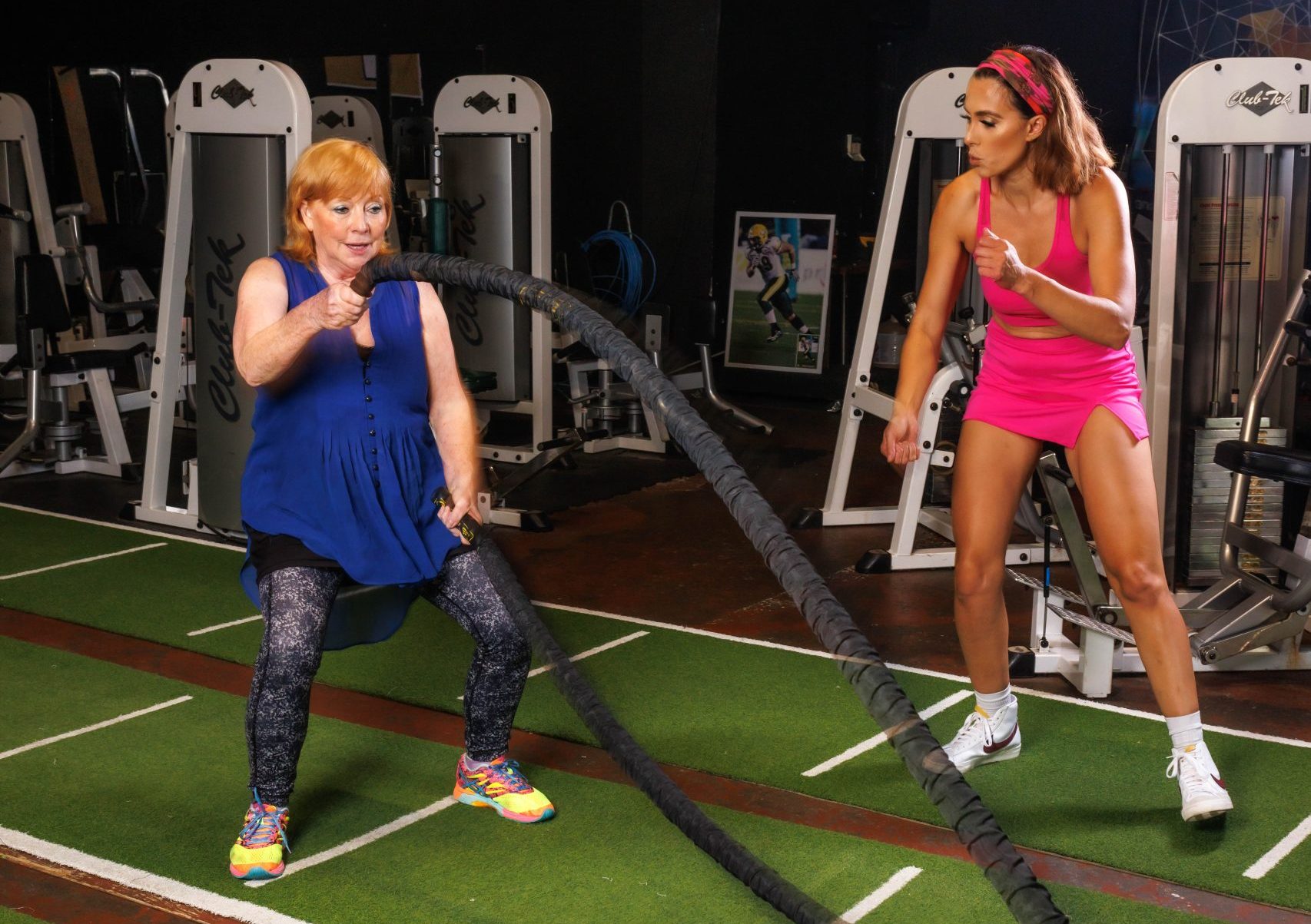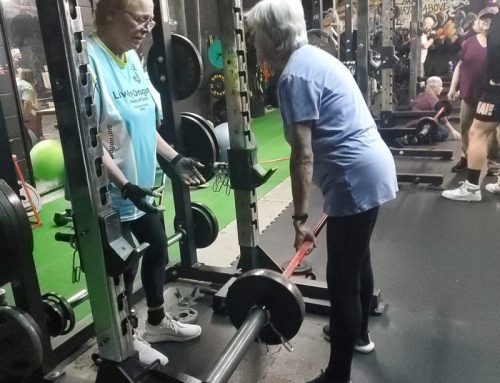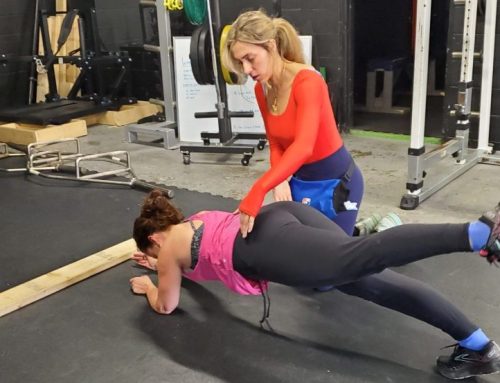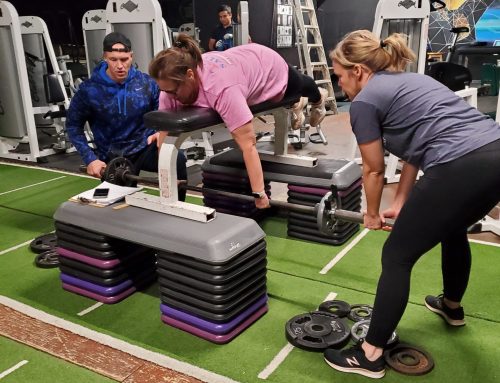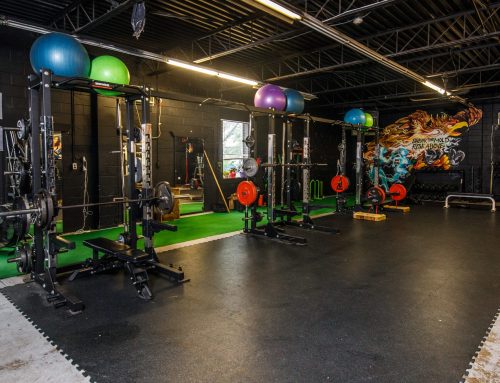We see it time and time again, women walk into the gym and head for the 3-5 pound dumbbells and the cardio machines. These same women, who in their daily life can carry an entire load of groceries into their house in one trip or effortlessly maneuver around holding a crying toddler, a sleeping baby and a diaper bag bursting at the seams, underestimate their strength when it comes to working out.
When it comes to strength training women will often default to the lightest weights available, or skip weights entirely, believing that light weights are all they can lift, all they should lift or that cardio is the key factor in fitness for women. There is a major disconnect between what a woman is capable of and should be lifting and what women are lifting.
Shifting this mindset and embracing strength training is crucial for women of all ages but even more urgent for women over 40. This goes beyond aesthetics and has nothing to do with surface goals like building a “summer body” or looking “toned” but instead is about creating long-term health that will determine a woman’s longevity and independence as she ages.
Here are five important reasons why women over 40 should prioritize strength training:
1. Combat Muscle Loss
After age 30, sedentary women can lose 3 to 8 percent of muscle mass every decade, with the decline accelerating during perimenopause and post-menopause. Even active women who walk, run, swim and participate in activities like yoga and pilates will experience muscle loss if they are not including strength training in their fitness regimen. This loss can increase the risk of falls and injuries. Strength training can help maintain or even build muscle mass, slowing and even reversing the effects of aging.
2. Boost Bone Density
Women lose about 0.4% of bone density each year after 40. This decline can lead to osteoporosis, especially post-menopause. Weight-bearing exercises help strengthen bones, maintaining bone density and reducing the risk of osteoporosis. Dense bones also help maintain a stronger immune system which means a better ability to combat illness and infection as a woman ages.
3. Enhance Functional Movement
Strength training improves your ability to perform everyday activities, such as carrying groceries, playing with children and grandchildren, or climbing stairs. What seem like simple movements like getting on and off a toilet or getting in and out of bed are what can determine how long a person can live independently. By incorporating weights now, you’ll preserve your mobility, independence and improve your quality of life well into your senior years.
4. Improve Mood and Overall Quality of Life
Engaging in strength training can have positive effects on mental health. Exercise releases endorphins, which can improve mood and reduce anxiety. Additionally, the sense of achievement from reaching strength goals can boost confidence and self-esteem. Stronger muscles can also reduce pain, increase range of motion and flexibility and support recovery from injuries. Additionally, lifting weights can alleviate hot flashes and night sweats, enhancing sleep quality and overall mental health during perimenopause and menopause.
5. Manage Weight Gain
As we age, physical activity often decreases. There’s a misconception that cardio is the best route to weight loss, leading many women to spend their gym time on ellipticals and treadmills. Muscle tissue burns more calories at rest compared to fat tissue. By increasing muscle mass through strength training, women can boost their metabolism, making it easier to manage weight as they age. While cardio is essential for heart health, strength training is the most effective way to combat age related weight gain.
It’s never too late to start. Many women believe they are too old to begin strength training, but the reality is that aging makes it even more crucial. Strength training is one of the most impactful things women over 40 can do to maintain their health and vitality, especially as they enter menopause.
At Cornell Performance Academy, Hamilton’s Neighbourhood Gym, we have many options for women of all ages to learn about and participate in strength training. From helpful staff ready to demonstrate how to use equipment or perform an exercise properly, a community of friendly women getting strong together, monthly in-app strength training programs designed to take the guesswork out of lifting and personal trainers who can help anyone from newbie to experienced weightlifter reach their potential.


